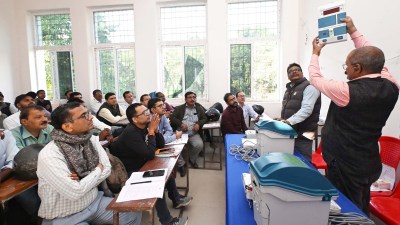Don’t call top bureaucrats at drop of hat: SC to High Courts
In a much-needed relief for bureaucrats, who are summoned at the “drop of a hat” by High Courts, the Supreme Court...

In a much-needed relief for bureaucrats, who are summoned at the “drop of a hat” by High Courts, the Supreme Court on Thursday condemned in harsh words “frequent, casual and lackadaisical summoning” of senior Government officials.
A Bench of Justices A K Mathur and Markandeya Katju said the court was coming across a large number of cases “where such orders summoning high officials are being passed by the High Courts and often it is nothing but for the ego satisfaction of the learned judge”.
The Bench made this observation while quashing a Gujarat High Court order summoning the state’s Chief Secretary and Law Secretary in a case.
“There is no doubt that the High Court has power to summon these officials, but that should be done in a very rare and exceptional case where there are compelling circumstances to do so,” the apex court said.
Significantly, the Bench further called upon the courts to pay proper respect to the official summoned. “The senior officials too have their self-respect, and if the court gives them respect they in turn will respect the court. Respect begets respect,” it said.
At a time when the judiciary is seen to be at loggerheads with other arms of the state, Justice Katju who wrote for the Bench said, “The judiciary must have respect for the executive and the legislature. Judges should realise that officials like the Chief Secretary, Secretary to the Government, Commissioners, District Magistrates, senior police officials are extremely busy persons who are often working from morning till night.”
In a word of appreciation for the bureaucracy, the court observed, “Although ministers lay down the policy but actual implementation of the policy and day-to-day running of the Government has to be done by the bureaucrats, who are working round-the-clock.”
Deploring the practice of courts “humiliating” senior officials by making them stand during the entire proceedings, Justice Katju noted how officials need not to be made to stand all the time, and they can be offered a chair by the court to sit and need to stand only when answering or making a statement in the court.



- 01
- 02
- 03
- 04
- 05



























